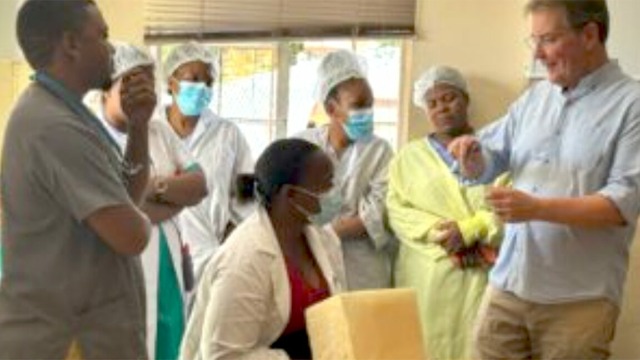By Rick Mautz
“There is a need of coming close to the people by personal effort.”
– Ellen G. White, Ministry of Health (p. 143)
When Jesus physically left our world, He thought it important to leave not just information, but to also leave the Comforter, the Supporter. People today have lots of information but little support to apply that information. They need help. They need support. A “Support Church” then becomes the most relevant church for our world, a church where the main outreach (and in-reach) of its members is support.
Information obviously plays a part, but, without support, people often fail. There is much emphasis on the big programs and little on the one-on-one support which is most important for our success. Information seldom leads to lasting change without the personal support of a caring friend to offer encouragement.
You would think that the need for social support would be well met in a world where social media has exploded, but people today are more socially isolated than ever before. What God demonstrated when He sent His Son, and later the Comforter to help us, was that we need personal help to make changes in our lives.
Instead of just giving information, we need to learn how to reveal Christ through personal connections, assisting others to make the changes in their lives that they long for. We need to help them set and reach goals through encouragement and share with them the source of real power for their success. Then we will experience in our churches what many are longing for—the power to live a healthy and happy life growing into the image of Christ.
Personal and social support not only helps people make lifestyle changes but brings about healing. A nurses’ health study conducted by Harvard University looked at almost 3,000 women with various stages of breast cancer. They wanted to know if social support had any impact on the outcome of their condition. The study concluded that those that were socially isolated had twice the death rate than those who were socially integrated.1 God has created us as social beings, and our body just doesn’t do as well without that important element in our lives.
Our Adventist health programs give us an opportunity to get to know individuals. But the larger the group is, the less we can know anyone in a very personal way. A program based primarily on giving information does not address individual needs. When specific needs, questions, and life challenges are not addressed, we need to ask and listen to them as individuals, finding ways to connect with them in a more personal way. God’s character is most clearly seen when we:
- Treat them as God does
- Listen in a way that is rare today
- Demonstrate the character of God that they would long for if only they knew Him
- Ask important questions
- Show we care and want to know more about them
- Discover the deeper aspects of their struggles and joys
- Share with them insights that distinguish their feelings and truth
Your ongoing connection and support reflect a God that will never leave them and will walk alongside them, supporting and helping them come what may.
One way to act out this approach is as simple as having them over to your house or going to theirs. Fix a healthy meal and watch a short health video. Eat together and answer their questions. This approach is more personal, gives opportunity for more intimate discussion, leads to greater success, and is easy for almost anyone to do.
Our view of success is often based on the number of people who attend our programs, and we may think that a few people invited to your home is not as successful as a room full of people at a church cooking school. But if you ask the attendees what their view of a successful program is, they will say it is a program that was effective in changing their lifestyle and bringing about lasting health. The smaller, personal program is the more successful approach for lasting change and is often easier for most people to do.
—Rick Mautz, PT MS, is RMC director of the Rocky Mountain Lifestyle Center. Photo by Pexels.
1 Kroenke, C. H., Kubzansky, L. D., Schernhammer, E. S., Holmes, M. D., and Kawachi, I. (2006). “Social networks, social support, and survival after breast cancer diagnosis.” Journal of Clinical Oncology. Vol. 24, Iss. 7, 1105–1111.




